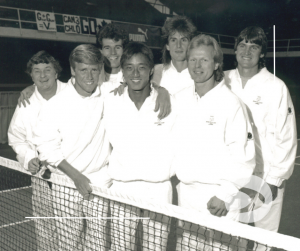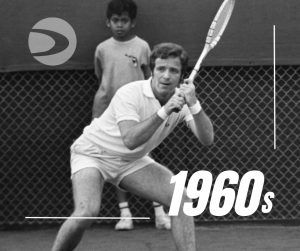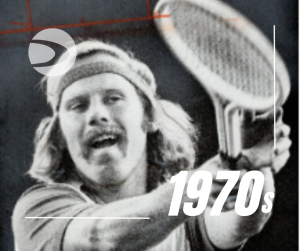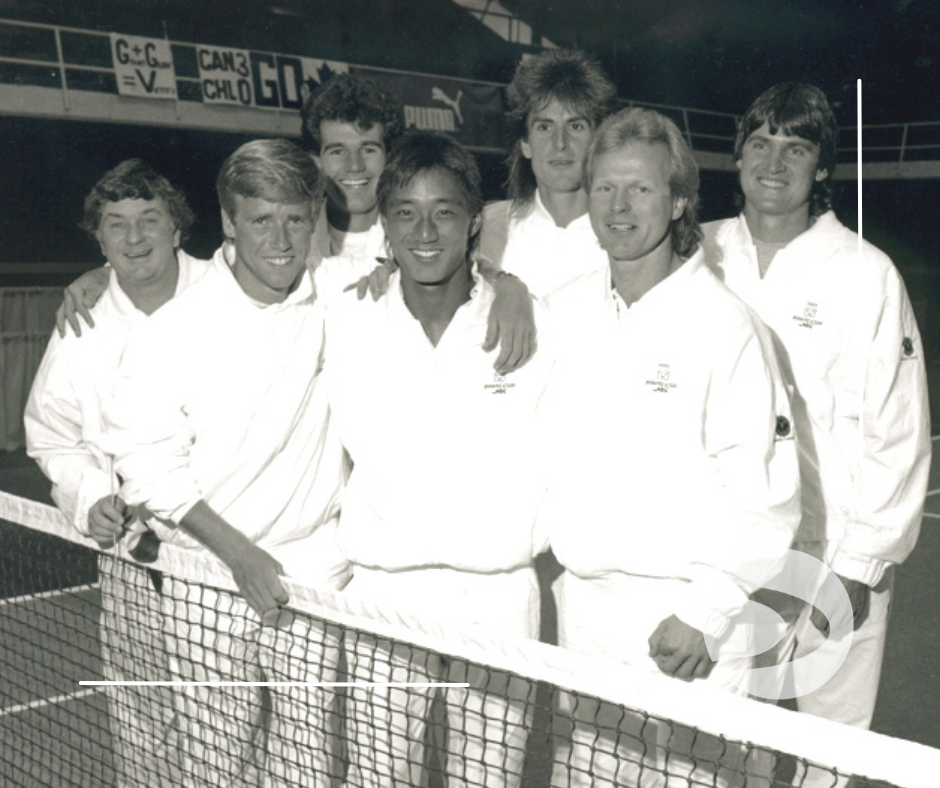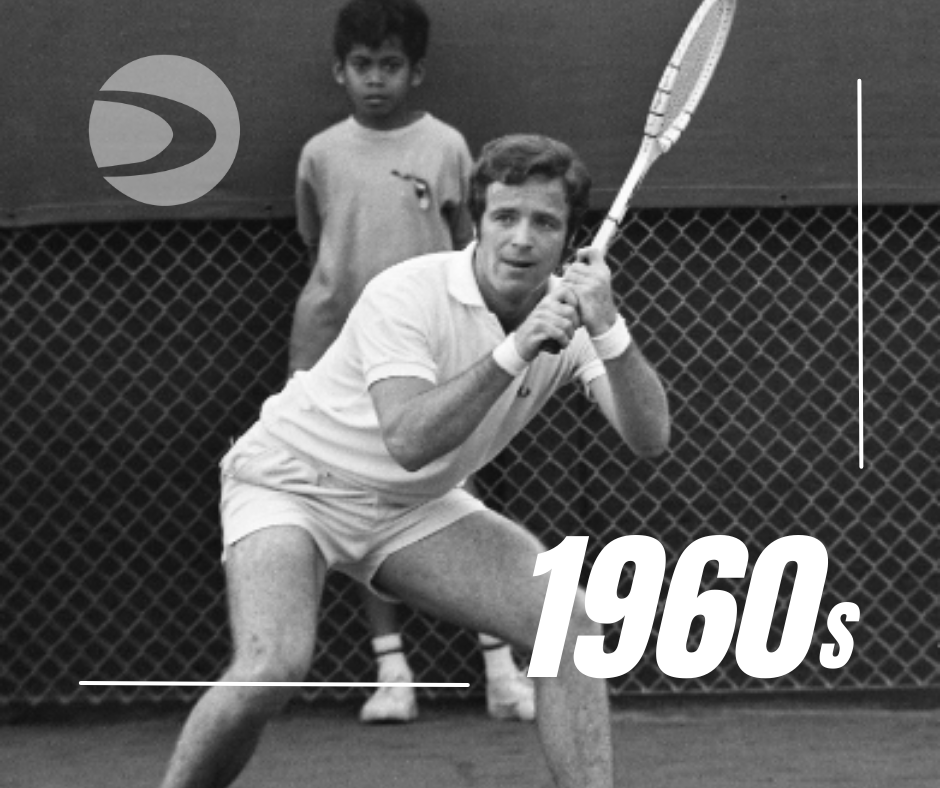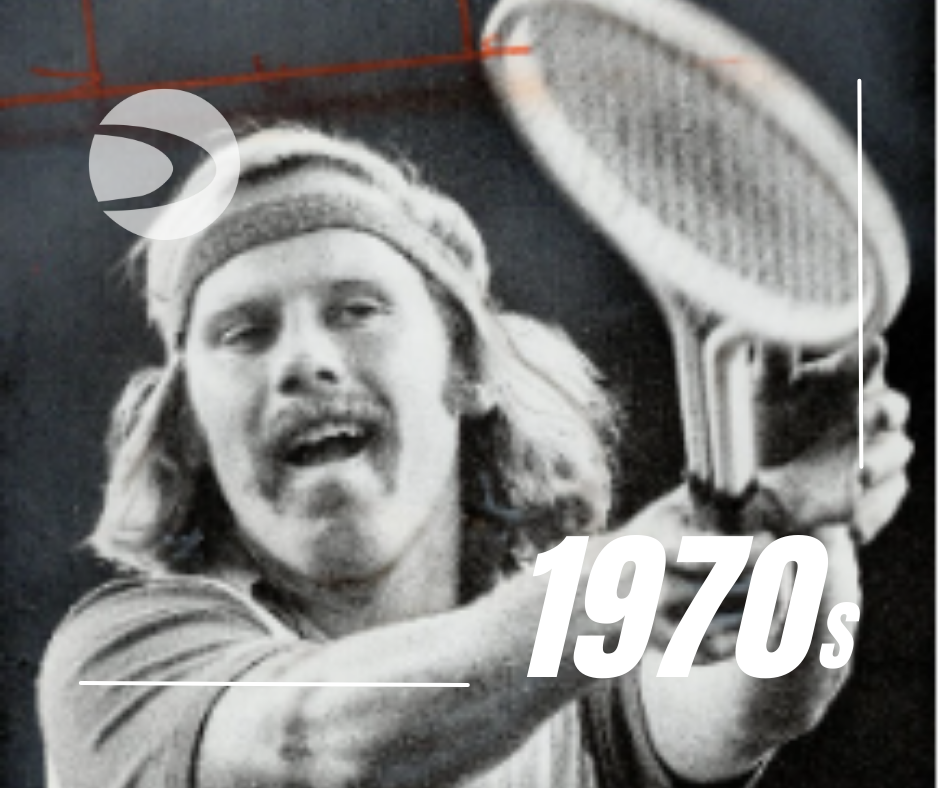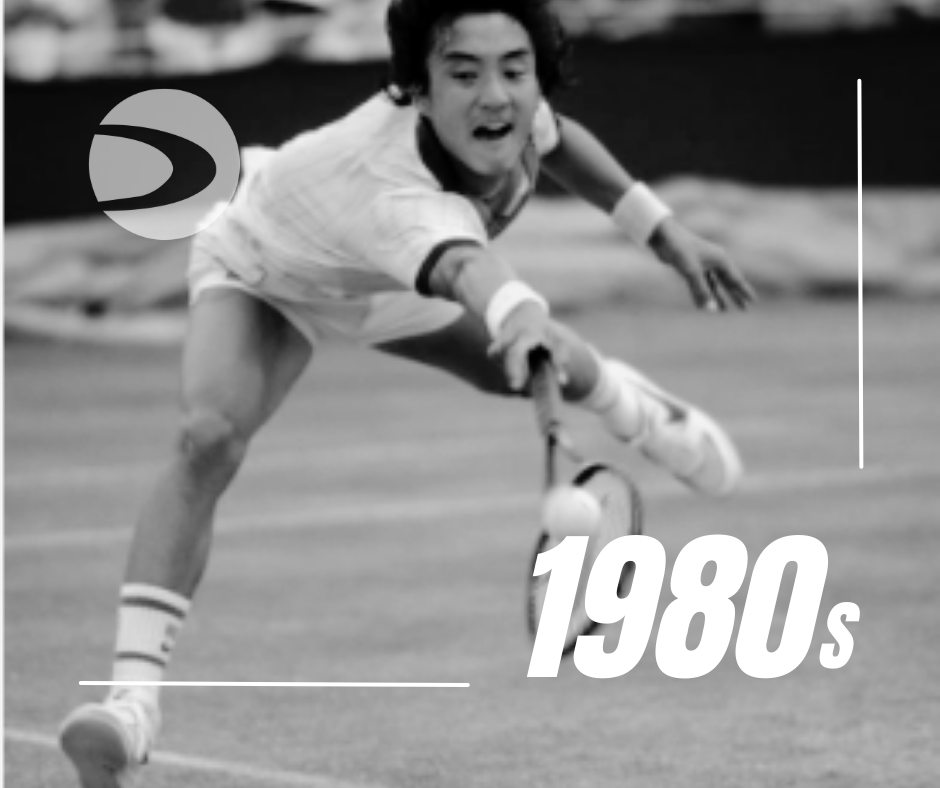Canada’s Giant
Bob Bedard
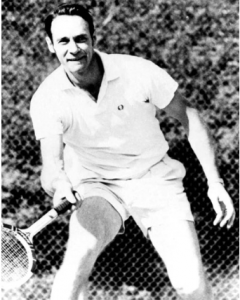
Robert Bédard (born 13 September 1931) is a Canadian former tennis player and educator. Bédard was considered among the top ten clay court players in the world and was the top-ranked Canadian singles player in ten years between 1955 and 1965. Bédard won three Canadian Open singles titles in
1955 (over Henri Rochon in the final), 1957 (over Ramanathan Krishnan in the final) and 1958 (over Whitney Reed in the final). Bédard won a record seven Quebec Open singles championships and three Ontario Open singles titles. He won the U.S. Eastern Clay Court Championships in 1960. His career titles won was 29 tournaments, mostly on clay, in a very restricted playing career often confined to just the summer months. Bédard represented Canada in Davis Cup play for many years, reaching North America Zone and Interzone Finals in 1953, 1955, and 1959. During his career, he defeated No. 1 players of 20 different countries, including Australia and the U.S.. Bédard was a multi- sport athlete and was offered professional contracts with the New York Rangers ice hockey team and the Cleveland Indians baseball team, which he declined in favour of a career in academia. He became the principal of St. Andrew's College, an elite private preparatory collegiate, from 1981 to 1997.
OC: How important was Davis Cup?
RB: In the 50s and 60s, playing in the Davis Cup matches was the most important aspect of a career. Unfortunately for Canada, winning the first matches in the American zone led to either Australia or the US as the years winner automatically played in the following years finals. Personally, the best I did was taking a set from Rosewall and a set from Emerson, whom I had defeated 2 weeks before Wimbledon a year before. In my whole career, I was 1 foot fault and it occurred against Rod Laver at 5/6 15/30 in the first set. I hate to say this, but the linesman happened to be a French Canadian.
OC: This year’s win:
RB: There is no doubt that this years Davis Cup win was the most important one in Canadian tennis history. It might never occur again. Kudos to the 3 members who came up at the right moments.
Left handed serve nightmare
Keith Carpenter
The lanky leftie was a regular Grand Slam and Davis Cup player for Canada in the 1960’s. He and his brother Michael won the Canadian Men’s Open Doubles Championship in 1966
OC: What do you remember about Davis Cup?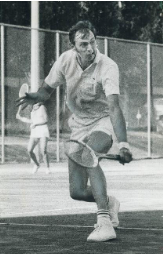
KC: Well you are asking me to remember some 50 or more years ago and all I can say is that I never was as nervous playing for myself as when I played for my country.
OC: What is your best memory of Davis Cup?
KC: My greatest memory was a tie against G.B. in 1967 (I think) at Bournemouth Tied 1 to 1 going into the doubles which I was supposed to play with Bob Bedard who was replaced by Mike Belkin at the last minute (to play Roger Taylor and Bobby Wilson). We were up 2 sets to none and 5-2 in the third (Mike will tell the story that I missed a high fourhand volley)…we lost the set and the fourth, had five match points in the fifth (some on my serve) and lost I think 11-9 in the fifth. The next day Mike lost to Roger Taylor after having four match points and the tie was over.
OC: What about Canada’s win?
KC: The guys winning the Davis Cup was amazing…I never thought that would ever happen.
Hope this is what you wanted…you’re lucky I remember that much….if it wasn’t for Belkin bringing up that fourhand volley every time I talk to him I probably would have forgotten all about it years ago.
The Judge
Francois Godbout
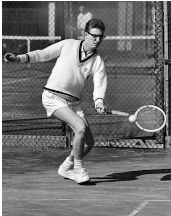 I will remember forever the day Francois won the first set against recent Wimbledon runner up Rod Laver. In his Davis Cup career Francois played the best of the best. He followed his tennis career becoming a lawyer for the City of Montreal and eventually a judge in Quebec. The talented Francois could also play a mean piano:
I will remember forever the day Francois won the first set against recent Wimbledon runner up Rod Laver. In his Davis Cup career Francois played the best of the best. He followed his tennis career becoming a lawyer for the City of Montreal and eventually a judge in Quebec. The talented Francois could also play a mean piano:
For me as a kid, I dreamt day and night of being part of the team. was a member of the team for seven years from 1959 to 1964 band in 1969 and played the best in the
world: R. Laver, B. Bartzen, A. Palafox. M. Lamas, C. McKinley, D. Ralston, R. Osuna, A. Palafox, J.Newcombe, A. Roche, J. Hordijk, M. Fleury. In doubles R. Osuna – A. Palafox, C. McKinley-D. Ralston, R.
Emerson-A. Roche.
In his words :
Bien évidemment, je garde de mes débuts un souvenir impérissable puisque je leur dois pour bonne part les quelques succès que j’ai pu connaître … HORS courts. Cette première manche contre Rod Laver, à l’époque finaliste à Wimbledon contre Alex Olmedo, que j’ai remportée au compte de 9-7 sur le gazon du Mount Royal T.C. Je me souviens parfaitement du dernier point lorsque Laver, au service, rata sa volée. Malgré la chaleur qui régnait, j’eus la chair de poule et débutai la deuxième manche en perdant les trois premiers points à mon service. Me vint alors un moment d’orgueil : « Laver a pris le match à la légère jusqu’ici et devient maintenant sérieux, vont penser les observateurs; il faut que je gagne ce service », me dis-je en moi-même. Et j’enfilai les cinq points suivants, à la surprise générale. Cette séquence a fait ma fortune. Je la rejoue encore de temps à autre!
About Canada’s win:
Les plus vieux parmi nous sont peut-être les plus émerveillés puisque mieux que quiconque peuvent-ils
mesurer le chemin que le tennis canadien a dû parcourir pour en arriver à ce sommet. J’ai suivi passionnément les épreuves,
Canadian Tennis Pioneer
Harry Fauquier
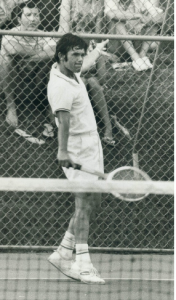 I have known Harry Fauquier since I was 12, he was 16, Canada’s most promising player with a strong personality. When I was 23 and decided to play professionally, Jim Boyce who was a player on my team at Mississippi State and who told me that I should look up Harry in Toronto. Harry became my coach, which meant warming up for two minutes and then progressing to play sets where he routinely beat me after which he would say: “You are getting better”. Over the years he became one of my closest friends and my most trusted advisor from Davis Cup to developing All Canadian. A former Davis Cup captain, Harry understands the game like nobody else I have known.
I have known Harry Fauquier since I was 12, he was 16, Canada’s most promising player with a strong personality. When I was 23 and decided to play professionally, Jim Boyce who was a player on my team at Mississippi State and who told me that I should look up Harry in Toronto. Harry became my coach, which meant warming up for two minutes and then progressing to play sets where he routinely beat me after which he would say: “You are getting better”. Over the years he became one of my closest friends and my most trusted advisor from Davis Cup to developing All Canadian. A former Davis Cup captain, Harry understands the game like nobody else I have known.
HF: First let me say as you age you can’t do two things at once….when you get to my age you can’t do anything at once. So after pondering about these questions for several days now and at the risk of havingyou nag me….here are my thoughts on the questions asked:
OC: Harry what did Davis Cup mean to you?
HF: It’s funny. As a youngster due to my great results in juniors, my mother thought that I was going to win Wimbledon, so at the age of 16 she brought me a tuxedo for the closing celebration which requires for the men’s and women’s champion to dance at the opening of the ball. Davis Cup was everything to me as it provided the opportunity to represent Canada, while competing at the highest level and getting international recognition.
OC: What did you enjoy the most about Davis Cup?
HF: I loved getting together with other players as a team. The training made us all better and the energy that came from having a group of men with one goal made anything possible.
OC: What did you think of the amazing Davis Cup win?
HF: It was a dream of mind. It meant more to me than anything. I have worked all my life in the private sector and giving my time and money to make Canada a respected tennis country. I am knocked over that I was able to experience this great win.
A World Superstar
Mike Belkin
Mike Belkin was the number one player in the United States winning the 15 and under and 18 and under Kalamazoo and Orange Bowl as a Junior. He was an All American at the University of Miami (2nd Year) and got to the finals of the NCAAs but lost to Arthur Ashe. He also reached the Quarterfinals of the Australian Open. During his career he beat 6 Grand Slam Champions. He played number one for Canadas Davis Cup, won 16 singles matches and lost 7.
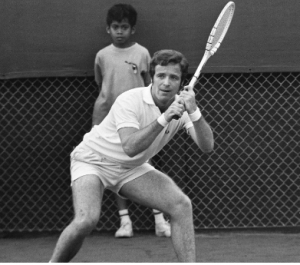 OC: When you think Davis Cup, tell us a memory of either a tie or great match:
OC: When you think Davis Cup, tell us a memory of either a tie or great match:
MB: My greatest match was with Thomas Koch in Brazil in front of the Brazilian fans throwing lighter and coke bottles onto the court, while I was playing or in between points.
OC: What it meant to represent Canada for you?
MB: It was a great Honor to represent Canada in David Cup. It was a lot of pressure, but I handled the pressure. It made play much better.
OC: What do you think of Canada finally achieving the Ultimate Result?
MB: I’ve been following Tennis Canada since I was playing, I always felt that someday they will win. I’m extremely happy that they finally won. All the players in Canada are great athletes. The players are hungry to win.
From DC Rookie to Doctor
Bob Puddicombe
PB: 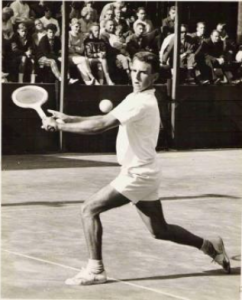 I was thrilled that Canada won the Davis Cup this year. It did bring back some memories for me. I was a member of the Davis cup team in 1965, 1966, 1967 and 1969. We played against the USA, Finland, France, Britain and USSR. I was the junior member on the team so I only played in 1 official match against Finland. We won that tie but lost in the others. I did not win my match! I was 19 when I was first named to the team so it was the highlight of my tennis career at that time. I had won the junior nationals the previous year and played in the Orange Bowl that December. In those days the Davis Cup was the biggest event outside of Wimbledon, so it was a huge honour to play for your country. I did qualify for the Wimbledon men’s singles the following year. My favourite memory was the tie against Great Britain in 1967. Bob Bedard Mike Belkin, Keith Carpenter and myself were on that team. I was 20 years old, and Bedard was ancient at 35! Bedard took Roger Taylor to five sets. I was a cheerleader at the tie, but it was one of the most thrilling matches. We lost 4-1 but took the Brits to 5 sets in 3 matches. I started medical school in 1968, so my career in Davis cup ended in 1969 as school was full-time after 2nd year.
I was thrilled that Canada won the Davis Cup this year. It did bring back some memories for me. I was a member of the Davis cup team in 1965, 1966, 1967 and 1969. We played against the USA, Finland, France, Britain and USSR. I was the junior member on the team so I only played in 1 official match against Finland. We won that tie but lost in the others. I did not win my match! I was 19 when I was first named to the team so it was the highlight of my tennis career at that time. I had won the junior nationals the previous year and played in the Orange Bowl that December. In those days the Davis Cup was the biggest event outside of Wimbledon, so it was a huge honour to play for your country. I did qualify for the Wimbledon men’s singles the following year. My favourite memory was the tie against Great Britain in 1967. Bob Bedard Mike Belkin, Keith Carpenter and myself were on that team. I was 20 years old, and Bedard was ancient at 35! Bedard took Roger Taylor to five sets. I was a cheerleader at the tie, but it was one of the most thrilling matches. We lost 4-1 but took the Brits to 5 sets in 3 matches. I started medical school in 1968, so my career in Davis cup ended in 1969 as school was full-time after 2nd year.

